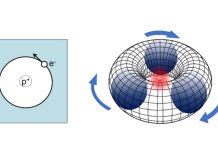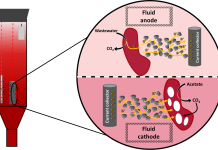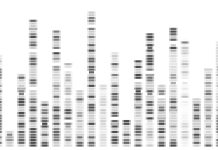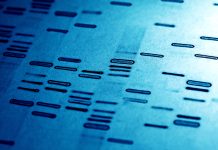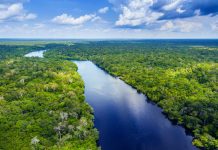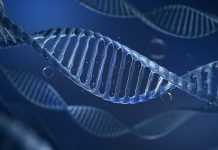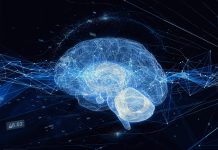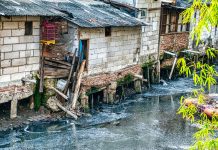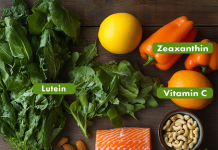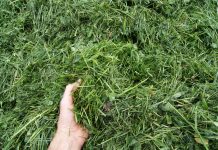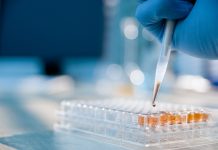Open Access Government produces compelling and informative news, publications, eBooks, and academic research articles for the public and private sector looking at health, diseases & conditions, workplace, research & innovation, digital transformation, government policy, environment, agriculture, energy, transport and more.
Home 2025
Archives
Positron and electron catalysis of neutrino hadronization: How our universe was made. Part II
Constantinos G. Vayenas, Dionysios Tsousis and Eftychia Martino discuss advancements in understanding particle physics through the development of the Rotating Lepton Model (RLM).
Nanobubble transformation of water treatment
Professor Niall English discusses the challenges and advancements in water treatment, highlighting AquaB Nanobubble Innovations’ breakthrough nanobubble-generation technology, which offers a more sustainable solution for water treatment across various sectors.
Purple phototrophic bacteria and microbial electrochemical technologies: A new biorefinery concept for wastewater treatment
The shift towards sustainable wastewater treatment focuses on nutrient recovery through biorefineries, highlighting the importance of microalgae, cyanobacteria, and, more recently, purple phototrophic bacteria for their metabolic flexibility and adaptability.
Raman spectroscopy for forensics: Identifying body fluid traces and gunshot residue
Here, the Department of Chemistry and the Center for Biophotonic Technology and Artificial Intelligence (CeBAI), investigates Raman spectroscopy for forensic applications, a universal technique for identifying traces of body fluids and gunshot residue.
Compassion starts within: Mental health and wellbeing for healthcare professionals
With burnout being common among healthcare professionals, Dr Dianne Wepa and Tanya Levin discuss practical strategies for supporting the mental health of healthcare workers.
How EIT food fosters bioeconomy entrepreneurship: From policy to people – and back
Representatives of EIT Food Education discuss the importance of entrepreneurship education in advancing Europe’s bioeconomy, highlighting that a sustainable economy relies on bio-based solutions and overcoming skills gaps.
Single chromosome sequencing with Haplomic Technologies
Explore single chromosome sequencing with Haplomic Technologies, starting with some background and corporate history.
Solar wind can provoke earthquakes: Possible magnetosphere-solid earth tornado
This article explores the potential influence of solar wind on earthquake occurrences, drawing on findings that show a correlation between strong earthquakes and geomagnetic storms, particularly in areas beneath the polar cusp during storm events.
COP30 in Belém: A new horizon for climate leadership
Professor Richard Beardsworth looks ahead to COP30 in Belém, considering whether this could represent a new era for climate leadership with Brazil positioned to lead, at least in partnership with other major actors.
Unravelling NASH and insulin resistance: Insights from the department of human health and nutritional...
Open Access Government sits down with a researcher from the Department of Human Health and Nutritional Sciences to discuss their groundbreaking work on nonalcoholic steatohepatitis (NASH) and insulin resistance. Their research delves into the molecular underpinnings of these increasingly prevalent conditions, offering new avenues for understanding, prevention, and treatment.
The NAD+ stack, optimized: A multi-target strategy to support healthy aging
Research has identified key mechanisms driving aging and actionable targets for promoting longevity. A promising strategy is to preserve the cell’s ability to produce energy, repair DNA, and stress resilience, with nicotinamide adenine dinucleotide (NAD+) playing a central role. Here, Dr. Rebecca Crews presents a multi-target approach to support healthy aging.
A ten-minute brain rest lets AI connect the dots across neuroscience
Dr. Masanori Shimono from Keio University highlights the importance of recording spontaneous neural activity in neuroscience and suggests that modern AI techniques can reveal meaningful patterns, offering insights into fundamental brain functions.
Addressing the environmental impact of healthcare is a vital step to combat the climate...
Daniel G. Rainham and Sean D. Christie from Dalhousie University and Nova Scotia Health discuss the key areas where efforts should be directed to reduce the environmental impact of healthcare.
Water pollution in the textile industry: An urgent call for sustainable innovation
For business leaders and scientific professionals, addressing water pollution is crucial for the environment, economy, regulatory compliance, and public reputation. Victor Durand at Ever Dye highlights this issue in the textile industry and urgently calls for sustainable innovation.
Asbestos: Early immune responses
Ujjwal Adhikari, Kinta Serve, and Jean Pfau explain how asbestos exposure negatively affects the body’s immune response and repair mechanisms, particularly through macrophage dysfunction. They emphasize that gaining a better understanding of cellular responses to inhaled particles could help researchers discover new therapeutic strategies for addressing environmentally induced conditions.
Ocular nutrition for a digital generation
Effective nutritional solutions to support healthy vision in children affected by Computer Vision Syndrome (CVS). Discover how healthcare professionals and policymakers can promote eye health and reduce the impact of screen time on kids.
Carbon capture surfaces: Supporting Canada’s agricultural sector and climate ambitions
Canada is positioning itself as a global leader in carbon dioxide removal (CDR) as it addresses climate change and creates economic opportunities for farmers. Beth McDaniel, JD from Reactive Surfaces explains how.
Unlocking sustainable proteins: Clover grass and lucerne as a future food source
The world faces a dual challenge: reducing the environmental impact of food production while ensuring a sustainable supply of high-quality proteins. New membrane filtration method enables us to produce food-grade proteins free of green color, grassy taste and odor.
Security layers for neuromorphic photonic accelerators
Fabio Pavanello and co-authors discuss the importance of security layers in computer systems, particularly in the context of the Horizon Europe NEUROPULS project, which focuses on innovative security solutions based on novel neuromorphic architectures and PUF-based security layers.
The critical role of infection tolerance
Drawing on his research in understanding factors impacting infection tolerance, Brian P. Lazzaro, Liberty Hyde Bailey Professor at Cornell University, discusses the importance of tolerance to minor infections, highlighting that while active immune responses are crucial for pathogen defense, tolerance can often lead to better health outcomes.

